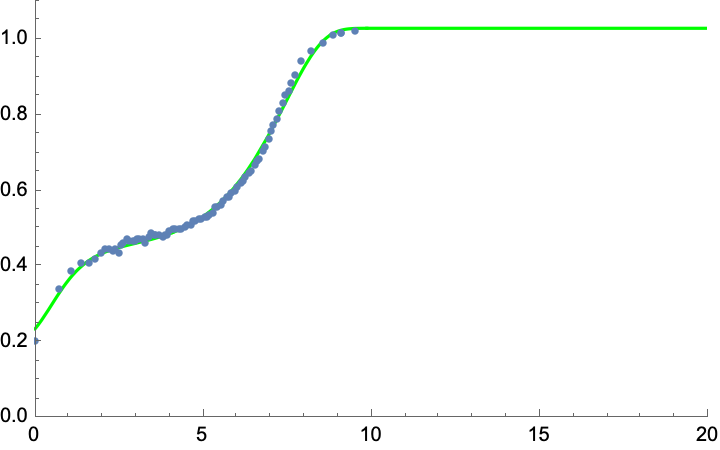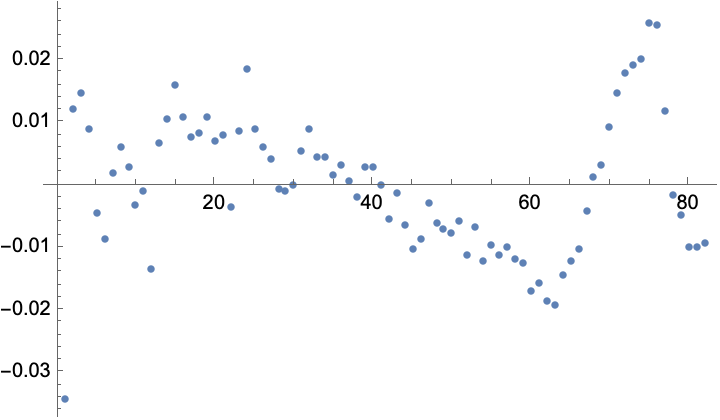For fun, I decided to explore this data set a bit to see if I could find something that fits nicely.
I began with the following expression:
model=a +b (c -d* 2.718281828459045`^(1/(2.` +2.718281828459045`^x x)-1.` E^(e* x^4)))^2
I then used Mathematica's NonLinearModelFit function to find the values for a, b, c, d, and e.
nlm = NonlinearModelFit[Transpose@data, model, {a, b, c, d, e}, x];
nlm["BestFitParameters"]
Out[301]= {a -> 0.114274, b -> 0.947472, c -> 0.983351, d -> 1.03142, e -> 0.000259904}
This gives a fit that looks like:
It was mentioned in the original post that we expect a limit of around 1.05-1.1, which appears to be captured by this model.
Plotting the residuals we see the following:
Enjoy!


